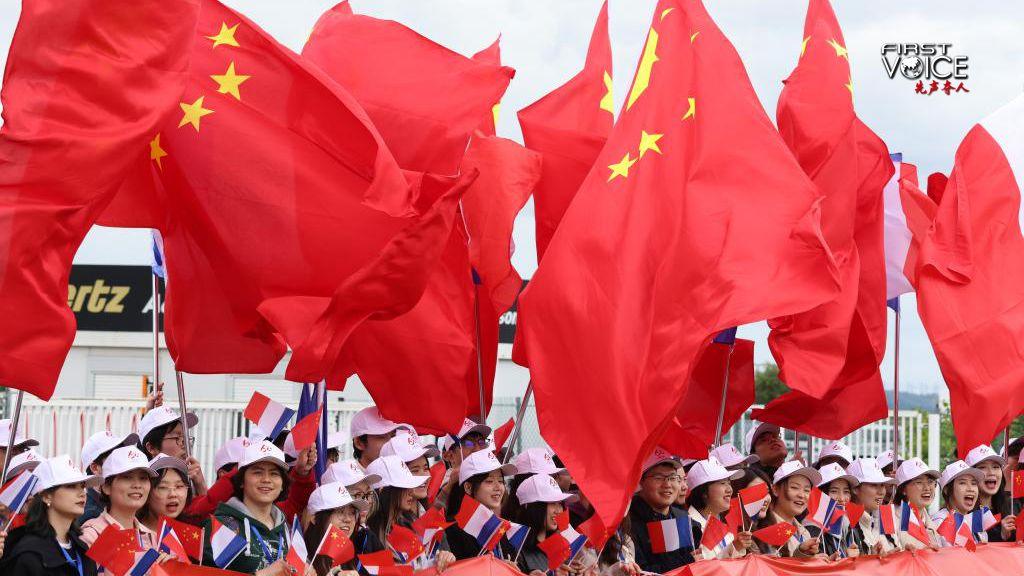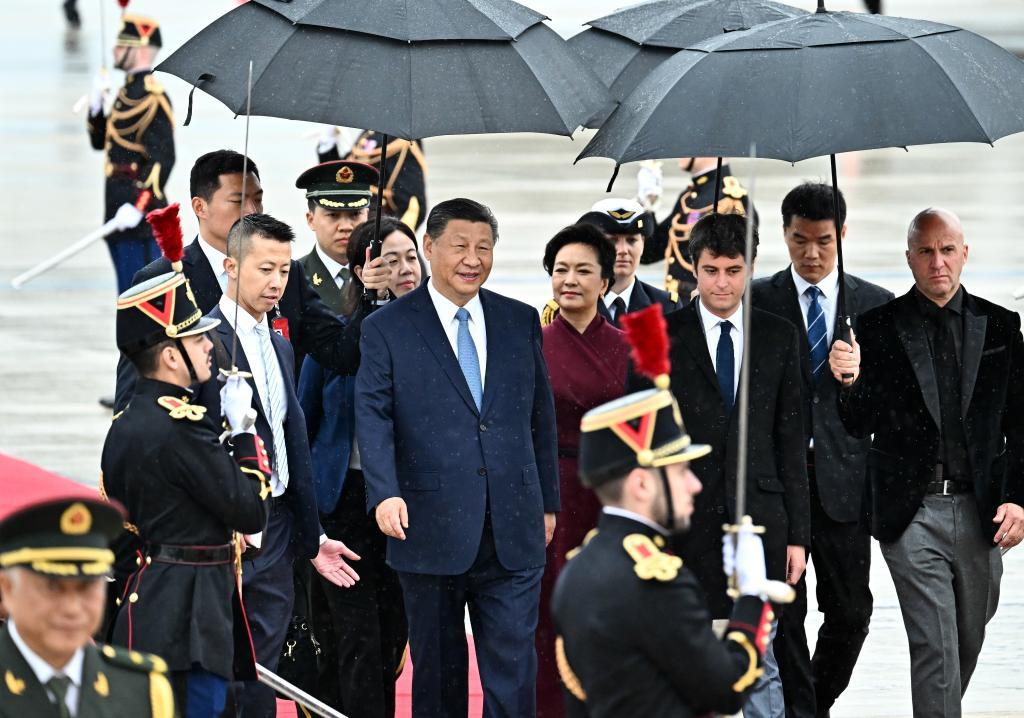
People welcome Chinese President Xi Jinping in Paris, France, May 5, 2024. [Photo/Xinhua]
Editor's note: CGTN's First Voice provides instant commentary on breaking stories. The column clarifies emerging issues and better defines the news agenda, offering a Chinese perspective on the latest global events.
Chinese President Xi Jinping embarked on his third state visit to France on Sunday at the invitation of his French counterpart Emmanuel Macron.
"In the 60 years since, our bilateral relations have always stayed abreast of China's relations with Western countries, setting a prime example for countries with different social systems to coexist in peace and pursue win-win cooperation," Xi said in his arrival statement at Paris Orly airport on Sunday.
Growing Sino-French ties are good news for all. But interestingly, some Westerners are hyping that Xi's European visit is an attempt to "loosen the continent's bonds with the United States and forge a world freed of American dominance."
True, an increasing number of European countries – askance at Washington's dominance – are becoming eager to bolster ties with Beijing. This is determined by their national interests, not the result of China's so-called efforts to "divide Western allies."
"Our Europe is mortal … It can die, and it all depends on our choices," Macron stressed in his speech at the Sorbonne in April. Compared with dancing to the U.S.'s tune, cooperation with China for a multipolar world free of "blocs" is apparently a more preferable choice for the French government.
As Xi said in his signed article published in French media Le Figaro on Sunday, China is committed to opening up even wider to the world. It welcomes more quality French farm products and cosmetics, as well as investment from France and other countries, to the Chinese market. In the face of geopolitical tensions and sluggish economic growth, European countries need to find a way out, and China-EU cooperation, despite their different social systems, has turned out to be effective for both to prosper.

Chinese President Xi Jinping arrives in Paris for a state visit to France at the invitation of French President Emmanuel Macron, May 5, 2024. [Photo/Xinhua]
Official data shows that France is now China's third-largest source of investment in real terms within the EU. According to a 2023 survey conducted by the French Chamber of Commerce and Industry in China, 47 percent of French member companies are planning to further invest in China.
China "will remain a very important source of growth for L'Oreal … We will continue to invest in the Chinese market," Nicolas Hieronimus, CEO of France-based beauty company L'Oreal, said in an interview at the CES consumer technology trade show in Las Vegas earlier this year.
In the meantime, the complementarity of Chinese and European economies has huge potential for multi-win cooperation. As Xi said in his signed article, while France is advancing re-industrialization based on green innovation, China is accelerating the development of new quality productive forces. Beijing-Paris cooperation in this regard is beneficial not only to the two countries, but also to the world's green development.
Chinese investment in the electric vehicle (EV) industry, for instance, is turning northern France into Europe's "Battery Valley." The gigafactory operated by China's Envision AESC is expected to create around 1,200 direct jobs at its commencement and potentially 3,000 by 2030 depending on orders, according to Wholesale Banking.
National interests determine the French government's choice of cooperating with China. Macron, on several occasions, stressed that France is never the "vassal" of the United States. Admittedly, Paris is one of Washington's oldest allies, but this does not mean it must dance to the U.S. tune. The warm welcome Xi received in Paris demonstrates the country's will to keep its diplomatic options open.
Macron insists the survival of the EU depends on strategic autonomy. True, to survive and prosper, France and other European countries need to make choices based on national interests, not the needs of Washington-led blocs. China has no intention of "dividing" Western allies. National interests and the will for strategic autonomy explain the European nations' pro-Beijing choice.

 中文
中文



